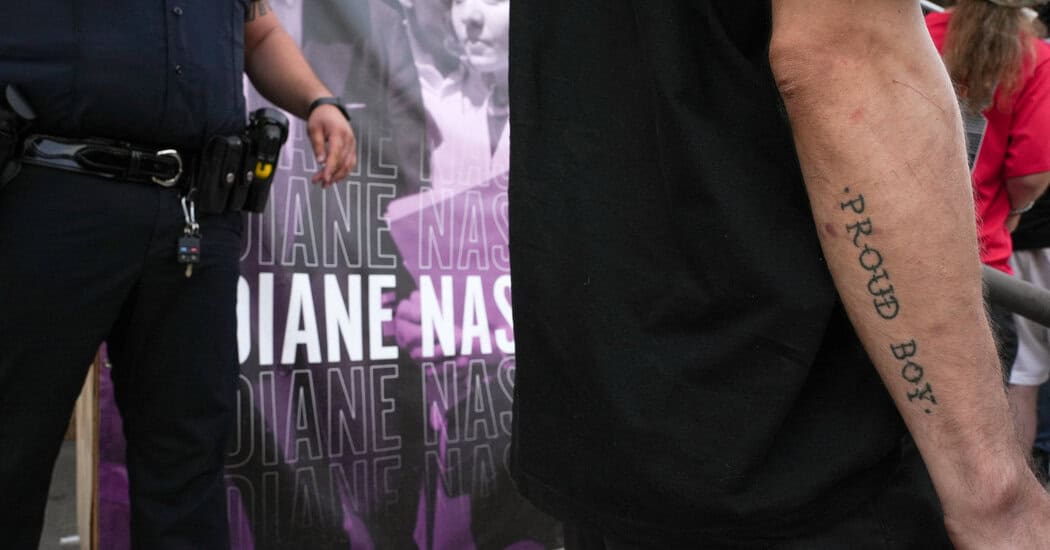Why Are There Neo-Nazis on the Streets of Nashville?

I wish I could say I was shocked when neo-Nazis started parading around downtown Nashville last week, wearing shirts emblazoned with swastikas and the words “Pro-white.” I wish I could say I was shocked when they asked passers-by, “Are you a Jew?,” or when they terrified a child, or when they unfurled a hate-filled banner for interstate drivers to see. Even on Tuesday night, when they disrupted a meeting of the Metro Council, spouting “antisemitic, homophobic and racist diatribes,” according to the Nashville Scene’s Eli Motycka, I couldn’t say I was surprised.
Just a week earlier, a different group marched on our streets carrying Confederate flags, and in February white supremacists marched here to celebrate “the great white South.” As a blue city in a deep-red state, Nashville has become an appealing target for people who fear diversity. “Diversity means fewer white people,” read the flyers that last week’s marchers handed out. “Inclusion means exclusion of white people. Equity means stealing from white people.”
In an irony of timing, “Dynamite Nashville: Unmasking the FBI, the KKK, and the Bombers Beyond Their Control,” a new book by the Nashville historian Betsy T. Phillips, was published on the same day that white supremacists harassed Nashville’s Metro Council. The book offers a necessary reminder of the world these neo-Nazis are nostalgic for.
“Dynamite Nashville” is an attempt to find out who was behind three unsolved Nashville bombings of the early civil rights era: at the Hattie Cotton School in 1957, the Jewish Community Center in 1958 and the home of Z. Alexander Looby, a Black civil rights attorney and Nashville City Council member, in 1960. No one was ever charged for the crimes.
Hattie Cotton was bombed the night after a Black child enrolled in the previously all-white school. The Jewish Community Center was bombed for all the usual reasons of antisemitism but also, Ms. Phillips convincingly argues, because local white supremacists believed that Black Southerners would have stayed happily in their segregated places if Jewish people hadn’t put ideas of freedom in their heads. Mr. Looby’s house was bombed in part because he was the attorney at the heart of virtually every civil rights lawsuit in Tennessee. These were typical targets for racist terrorists determined to stop the world from changing.
Though I know Ms. Phillips, as well as the historical context of the bombings she investigates, this book astonished me.